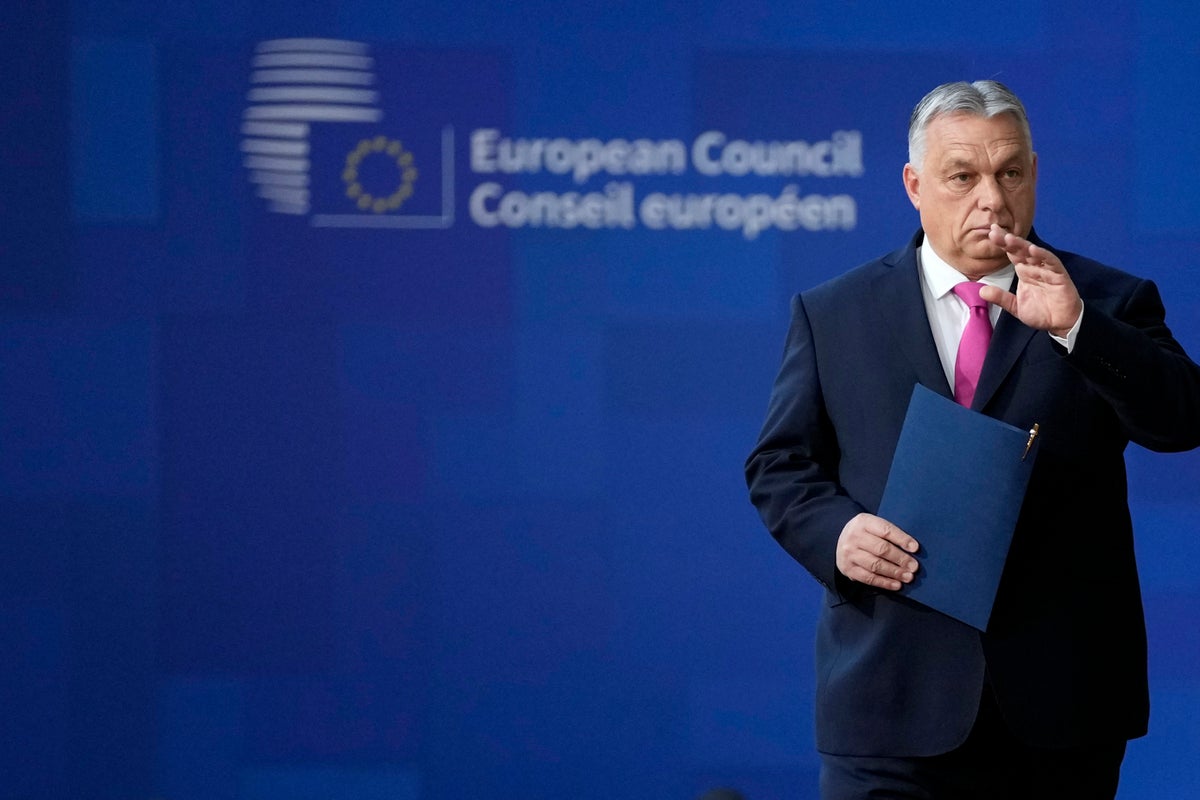
Hungary’s prime minister Viktor Orban blocked £43bn in EU aid for Ukraine just hours after an agreement was reached to start membership talks with Kyiv.
Mr Orban announced the veto on social media. He wrote on X: “Summary of the nightshift: veto for the extra money to Ukraine.”
“We will come back to the issue next year in the #EUCO after proper preparation.”
“With 26 countries we agree. There is no agreement from Hungary at the moment, but I am very confident for next year,” Dutch prime minister Mark Rutte said.
EU leaders plan to resume discussions on aid for Ukraine early next year.
Ukraine relies on EU and US funding while facing Russian occupation. President Volodymyr Zelensky had earlier praised the EU’s decision on membership talks as a victory for his country and Europe.
Mr Orban, who had previously opposed initiating EU accession talks, decided to step out of the negotiating room, allowing other EU leaders to reach a consensus decision without his direct involvement.
Despite this move, he later criticised the agreement, describing it as “a completely senseless, irrational, and wrong decision”.
Earlier this week, speaking to lawmakers in Hungary’s parliament, Mr Orban said that the time for bringing Ukraine into the EU had “not yet come” and that the development of a strategic partnership with Kyiv should be a prerequisite for beginning membership talks.
“We are interested in a peaceful and prosperous Ukraine, but this requires the establishment of peace as quickly as possible, and a deliberate deepening of the strategic partnership,” he said, adding that such a process could take “a number of years”.
“Everything has its appointed time, but the time for Ukraine’s membership in the European Union has not yet come.”
Hungary heavily depends on Russia for a significant portion of its energy supply, and the prime minister is widely viewed as one of Russian president Vladimir Putin’s staunchest allies in Europe.
The Budapest government consistently obstructs efforts to impose sanctions on Moscow related to the ongoing conflict and actively seeks to secure additional oil and gas resources from Russia.







